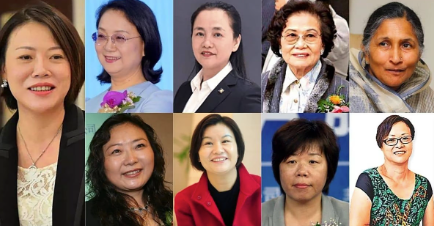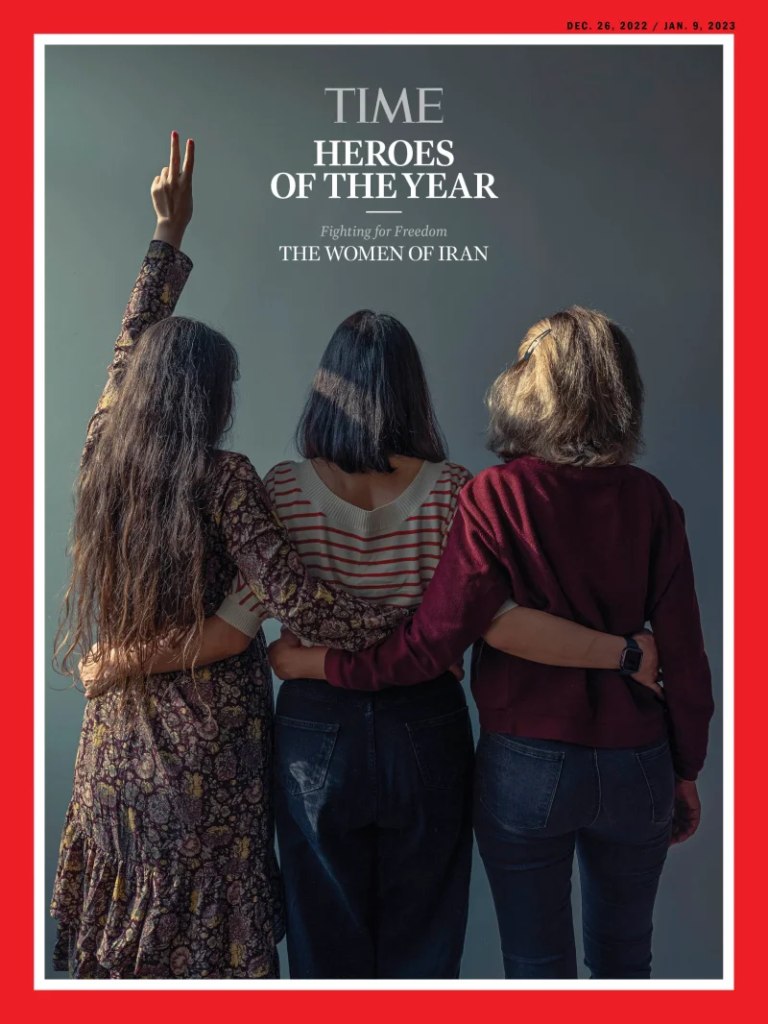Back when Rahool was not fully a man, he believed, like so many of his friends, that an occasional slap to his girlfriend was no big deal. “I thought she’s my property, why should it be anybody else’s business?” he said.
Pradip, now 25, was one of the boys who hung around the by-lanes of his home in Dabua, Faridabad, laughing, whistling at girls and passing lewd comments. “All the boys did it. We thought it was harmless,” he said.

Thappad, starring Tapsee Pannu, dealt with intimiate-partner violence (Source: Youtube ScreenGrab)
There are far too many boys in India who are growing up with fixed ideas of what it is to be a man. Men don’t help around the house. Men are strong. They don’t cry. They go out into the world, earn and take care of their families.
These ideas are drilled into them early on by the family. When Kalicharan, then a schoolboy in Jaipur, asked his mother if he could help her with household chores, his father scoffed. “Go outside and play,” he said.
“We think that because we earn, we are heroes. We can do anything,” said Rahool who uses only one name and now works as a community assistant with Swayam, a Kolkata-based organization working for the past 27 years to end discrimination and violence against women and girls.
“Men are not born violent. It’s society and our socialization process that makes many of them this way,” said Amrita Dasgupta, director, Swayam. “If you want a world free of violence, you cannot work only with women. You have to work with men and boys to break stereotypes.”
Social norms about masculinity put inordinate pressure on men to earn and support their families. When he picks up the phone to talk to his men friends, Rahool, invariably gets one response from them: Main bahut pareshaan hoon (I’m very stressed).
Few have the luxury of continuing their studies, especially in a post pandemic world. Almost nobody is talking about the toll on mental health. Frustration builds and finds unforgiveable release: A man returns home after a day’s work, finds his meal is not ready, and lashes out at his wife.
Trapped in gender norms

A scene from Fight Club (Source: Screen Grab)
The conversation on violence against women relies on data, on anecdotal detail of particularly horrific cases, and on interviews with activists and survivors themselves. Left out, by and large, is the source of this violence: Men.
“When you look at domestic violence or rape, you have to ask, ‘who is doing this’?” Rahool said. “Women know the source of violence but men still have no understanding of their role in it. Not all men are violent, but all men have a responsibility towards ending it.”
For this to happen, you need first to question gender norms.
“Patriarchy benefits men but oppresses everybody,” said Nikhil Taneja, founder and CEO of Yuvaa, a youth media impact and insights organization. It is patriarchy that conditions boys to become its enforcers and this too is a form of oppression, he said. “Boys can be taught to be kind and empathetic, but we don’t focus on them.”
As a result, too many boys grow up lonely and isolated, shamed by their peers when they talk about feeling vulnerable or wanting to break the gender roles into which they have been cast.
The absence of a like-minded community, the paucity of resources, and the lack of spaces to talk about it without being bullied is leading to the weaponization of loneliness, Taneja warned. We see this in mob lynchings led by young men, in gang-rapes and in the eruption of mens’ rights groups that see themselves as victims, not of patriarchy but of feminist activism.
[Hear Nikhil Taneja’s fascinating marathon talk on The Loneliness of the Indian Man on Amit Varma’s podcast, Seen and Unseen here.]
Interventions that work
Deepak, 19, of Hemi village on the outskirts of Lucknow always knew it was wrong for his maternal uncle to hit his aunt, But he never intervened: Not his fight, not his business.
He found his voice after attending gender sensitisation sessions conducted by Breakthrough, an organisation working to create a cultural shift that would make discrimination and violence against girls and women unacceptable. Now, Deepak has organised a group of 15 young men with whom he can talk about domestic violence and what they can do to stop it.
It’s never too late for change. After attending a meeting on gender, panchayat member Ravindra Kumar from district Ghazipur, UP decided to buy a cycle for his daughter, Ranjana so she could attend college and fulfil her dream of becoming a nurse. “Both my sons help with housework and all three children are free to follow their careers,” Kumar said.

His role is not limited to his family. Kumar has formed a committee in his village that works to promote the education and safety of girls. When his neighbours made caustic remarks about Ranjana’s mobile phone and how it could lead to loss of family ‘honour’ – a key reason for India’s digital gender gap — he retorts that in today’s age a mobile phone is absolutely necessary for learning and for information. Now, more girls than ever in his village have one.
In 2019, Rohini Nilekani Philanthropies commissioned a study to understand the benefits of male engagement programmes. Over three years, it recorded significant impacts. Those who had attended the programmes had gone to take concrete action: Stopping child marriage, increasing their contribution to housework and acting against street harassment.
Starting in 2016, Breakthrough and IKEA Foundation began a five-year long ‘empowering adolescents’ programme in seven districts in Uttar Pradesh, engaging with 150,000 young girls and boys aged between 11 and 19.
The change is measurable. Following the programme, the average age of marriage for girls increased by almost two years.
Awareness of health issues, including menstrual hygiene, had improved, with 17% more girls visiting a health facility.
Adolescent drop-out rates in school had decreased by 6%. And there was a change in how adolescents viewed domestic violence with a 27% increase in the number of boys and girls who said beating a girl was unacceptable and 29% more girls willing to report verbal violence within the family.
Changing tack
Talking to men and boys has obvious gains for women and girls with attitudinal change. But, it also liberates boys from having to adhere to rigid ideas of masculinity.
“A gender normative world takes away the humanity of boys and men who might want to be empathetic, who might want to be just human,” said Nayana Chowdhary, senior director, programmes at Breakthrough.
Many of the boys who’ve gone through gender sensitization programmes have a sense of achievement. They’re seen as problem solvers and “mini celebrities” in their own spaces, said Swayam’s Dasgupta.
One of the challenges is to find newer role models for boys.
Earlier this week, Swayam released a 40-second film, its second in its Soch Badlein, Baat Badlegi (things change when ways of thinking change). The film opens with two men in an office canteen gesturing towards and talking about a woman at the water cooler. You cannot hear what they’re saying but when the dialogue is revealed, you hear them praising her brilliant presentation. “She’s a perfect team leader,” one tells the other.
[Watch the film here.]

IN NUMBERS

Source: DPI Media
Women in Asia, excluding Japan, will hold $27 trillion in wealth by 2026, more than the $6 trillion held by women in Western Europe. The combined wealth of women in Asia is now the second-highest in the world after North America.
Source: Analysis by the Boston Consulting Group of Nikkei Asia. Read Shreya Raman’s story here.
Celebrate

Credits: Time
Time magazine’s choice for heroes of the year, the women of Iran, came even as the country executed Mohsen Shekari, 23, for his involvement in the ongoing protests demanding regime change. price of this heroism.
Sparked by the death in custody on September 16 of Mahsa Amini for not wearing her mandatory hijab properly, the protests show no sign of winding down. In addition to Shekari, 10 others have been sentenced to death, over 400 protesters killed and 18,000 have been arrested.
The revolt by Iran’s women has electrified the world. “No one, not the officials in Iran nor governments around the world who’ve made hostility to women a brand of politics, saw the power of a girl standing on a utility box, demanding to be left alone,” writes Azadeh Moaveni in Time.
Heroism is alive and well in Iran – but it should not have to come at such a heavy cost.
We hear you
“Lock up the men because they create trouble. Put the curfew for men after 8 pm. Let ladies walk out.”
–Justice Devan Ramachandran of Kerala high court while hearing a plea from women students at the Government Medical College, Kozihikode questioning a 9.30 pm curfew on them but not on men.
Going Places

AAP leader Bobi (right) flashes a victory sign after winning from the Sultanpuri-A ward of MCD in New Delhi on Wednesday (Source:PTI)
By winning the Sultanpuri ward, 38-year-old Bobi of the Aam Aadmi Party has become the first ever transgender councillor of the Delhi Municipal Corporation. A social worker for over a decade, she’s announced her priorites. First, “for the society and people who have voted for me.” And then, to address concerns of the transgender community, including jobs and livelihood.
Champion of women’s rights and people with disabilities, Apoorv Kulkarni was honoured with the Sarvshreshth Divyangjan, the highest civilian award to an individual living with disability. Presented by President Droupadi Murmu, on December 3, disability day, the award recognises Kulkarni’s work towards making the urban mobility ecosystem universally accessible. As a person with low vision, Kulkarni has first-hand knowledge of how technology can break down barriers for people with disability and those from under-privileged communities.
Words

Source: www.merriam-webster.com
Gaslighting, a form of psychological manipulation and abuse that makes people question their own memory, perception and sanity, is Mirriam-Webster’s most searched for word of 2022, reflecting a 1,740% spike in searches for it.
The spike, reports BBC, is “indicative of a wider trend in how women are describing abuse”. Words such as stealthing (when a man surreptitiously removes a condom during sex), downblousing (taking a photo down a person’s top without their consent) and upskirting (the same, but up a skirt) have entered the legal code in parts of the UK. Stealthing in fact is classified as rape in Germany, Canada and the UK.
The search for LGBTQI (the acronym for lesbian, gay, bisexual, trans, queer and intersex) also shot up, with spikes during Pride Month in June and in the aftermath of the shooting at a gay nightclub in Colorado Springs in November
From the courts

The Delhi high court on Tuesday ruled that the ultimate decision to have an abortion is “the choice of the mother”. The court granted permission to a woman to go ahead with the termination of a 33-week pregnancy when she discovered cerebral abnormalities in the foetus during an ultrasound. India’s abortion law allows termination beyond 24 weeks of pregnancy if there is a diagnosis of substantial foetal abnormalities.
The Gauhati high court has asked state authorities to ensure that a gynaecologist visits prison twice a month, if not weekly. “Female prisoners might feel shy to speak out about their illness,” the court observed in its order.
The Kerala high court said that a provision of the divorce act that mandates a one-year waiting period for divorce by mutual consent violates fundamental rights and has struck it down.
The Supreme Court admitted two petitions asking for a review of its November 7 order that set free three men accused in the horrific February 2012 gang-rape, torture and murder of a 19-year-old woman. The court had said there was insufficient evidence to establish the guilt of the three accused men and had set them free.
The review petitions were filed by the woman’s father who called the acquittal an ‘error’ that failed to consider the chain of evidence that “points towards the guilt and involvement of the accused.”
The Delhi Police also sought a review of the verdict claiming that the evidence ‘sufficiently’ established the guilt of the three men. It has also sought an open hearing in court.
I had written about the Chhawla gang-rape and Supreme Court acquittal earlier here.
AROUND THE WORLD
In Indonesia, Parliament has unanimously passed sweeping changes to its criminal code that criminalises sex outside of marriage for both citizens and foreigners. The changes, which come into effect after three years, also expand provisions for blasphemy and mark the country’s most conservative turn since the 1990s,creating “endless opportunities for abuse, particularly of women and LGBT people,” reports Economist.
In New Zealand, transgender athletes will be allowed full participation in community sport without having to prove or justify their gender identity. The guidelines will not apply to elite sporting events yet and it will be up to individual bodies to decide how they allow trans athletes to take part.
In Russia, President Vladimir Putin has expanded restrictions on ‘LGBT propaganda’ to all adults. The move, reports CNN, effectively outlaws any public expression of LGBTQI behaviour or lifestyle in the country. In 2013, Russia had banned the promotion of all ‘non-traditional’ sexual relationships among minors.
In Nigeria, a Reuters investigation has found evidence of a horrific secret and illegal abortion programme conducted by the Nigerian army since at least 2013. The programme terminated at least 10,000 pregnancies without the consent of women and girls, many of whom had been kidnapped and repeatedly raped by Islamist militants. Those who resisted were beaten, held at gunpoint or drugged into compliance. Read more here.
Before I go
December 16 marks a decade since the gang-rape and subsequent death due to her injuries of a 23-year-old physiotherapy student that so outraged the nation that it led to, among other changes, stricter rape laws. But in the past 10 years, crimes against women have gone up by 52%. The fight against violence, for dignity, for equal rights is far from over. Never forget.
| Were you forwarded this email? Did you stumble upon it online? Sign up here. |
| That’s it for this week. Do you have a tip or information on gender-related developments that you’d like to share? Write to me at: namita.bhandare@gmail.com. |